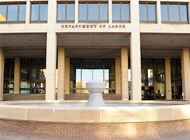 After being blasted by various industry stakeholders, the Department of Labor is reopening the comment period on the proposed amendment to its prohibited transaction exemption (PTE) filing and processing procedures.
After being blasted by various industry stakeholders, the Department of Labor is reopening the comment period on the proposed amendment to its prohibited transaction exemption (PTE) filing and processing procedures.
In its Aug. 22 announcement, the DOL’s Employee Benefits Security Administration (EBSA) also advised that it plans to hold a public hearing on Sept. 15 regarding the proposed amendment, with a possibility for a second day to be added on Sept. 16.
About the Proposed Amendment
On March 8, the DOL published a proposed amendment that would update its procedures governing the filing and processing of applications for administrative exemptions from the prohibited transaction provisions of ERISA, the Internal Revenue Code, and the Federal Employees’ Retirement System Act.
The proposed amendment would
- clarify the types of information and documentation required to complete an application;
- revise the definitions of a qualified independent fiduciary and qualified independent appraiser to ensure their independence;
- clarify the content of specific reports and documents applicants must submit to ensure that the department receives sufficient information to make the requisite findings under ERISA Section 408(a) to issue an exemption; and
- update various timing requirements to ensure clarity in the application review process.
The DOL received 29 comment letters on the proposal before the public comment period ended on May 29, 2022. After consideration of the comments, including a written request for a public hearing, the department decided to hold a virtual public hearing to provide an opportunity for all interested parties to testify.
It appears that most of those comments submitted argued that the DOL’s proposal would have a chilling effect on the PTE process.
One such set of comments, for example, came from the Groom Law Group, which noted that it had submitted comments on the proposed rule for other clients and groups of clients, but after careful consideration, felt compelled to take the “unusual step” of writing on its own behalf to express its serious concerns with the proposed rule and changes to the PTE application process.
“Although we appreciate the Department’s decision to seek public comment on some of its informal policies, we are dismayed by the Department’s efforts to make the PTE application process more difficult, costly, and time consuming,” the Groom attorneys wrote.
“By choosing to de facto end the PTE program for most purposes, the Department will further limit its opportunities to engage constructively with plans and to influence important plan transactions,” the attorneys noted in further urging the DOL to withdraw the proposal.
Comments Again Accepted
The DOL will reopen the comment period beginning on the hearing date (Sept. 15, 2022) until approximately 14 days after the department publishes the hearing transcript on EBSA’s webpage. The Department will publish a Federal Register notice announcing that the hearing transcript is available on EBSA webpage and when the reopened comment period closes.
All written comments and requests for a hearing should be sent to the Employee Benefits Security Administration (EBSA), Office of Exemption Determinations, U.S. Department of Labor, Attention: Application No. (the number stated in each Notice of Proposed Exemption) either:
- via e-mail to [email protected]; or
- online through http://www.regulations.gov.
Comments should state the nature of the person's interest in the proposed exemption and the manner in which the person would be adversely affected by the exemption, if granted.Comments must be received by the end of the scheduled comment period, which is 45 days after the announcement appears in the Federal Register, which occurred on Aug. 22, 2022.
Individuals and organizations interested in testifying at the public hearing must submit a written request to testify and a summary of their testimony by Sept. 8, 2022, including information regarding:
- the nature of the person's interest in the exemption and the manner in which the person would be adversely affected by the exemption; and
- a statement of the issues to be addressed and a general description of the evidence to be presented at the hearing.
- Log in to post comments
